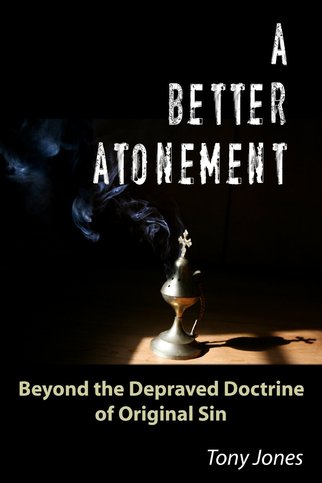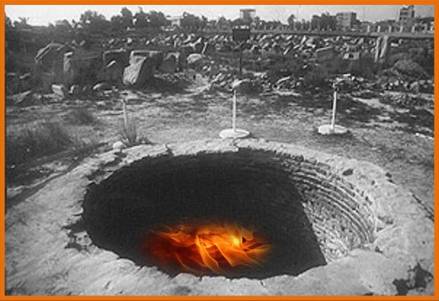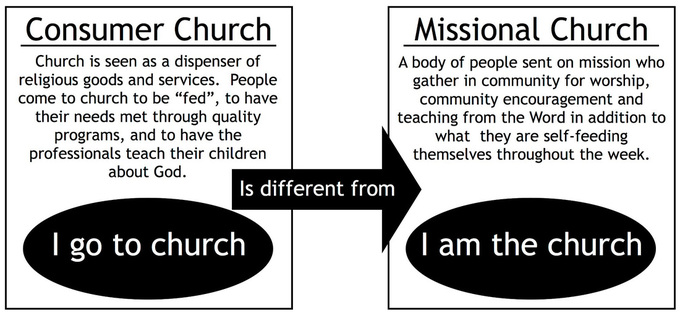|
This graphic captures exactly the transformation that I want the churches I lead to go through. This gives me lots of questions to answer:
How do I lead consumers who are so inundated with consumer culture to see church differently? We are so enveloped by consumerism, we don't even realize it. It is that pervasive here in the west as USAmericans. In fact, they way we typically describe the American Dream equivocates our ability to consume with success. So, how do I lead others to see things differently? It starts with me. Seek to consume less, and seek to serve/give more to/for/with God. How does being Missional change the time that we gather together on Sunday mornings? If an hour or so on Sunday morning is no longer a religious service to be consumed, what drives what we do during that hour or so? In the past, it seems like the songs we sing were chosen largely in part because they were consumable for people. You could probably say something similar about the sermons that are preached. It was an effort to sell God to consumers for what God can do for them. This is so different from the attractional, worship-driven model of evangelism. Is an average attendance number a good indicator for church health? Yes, but is worship the doorway to the Christian life as it has been in the past? It is a good indicator because it means you have more people who are being sent on mission. It can still function as a doorway for some (and even many), but maybe not in the way we've seen in the past. Why do I say this? Because if we're not trying to put out a product for consumption, then are we going to invest so much in doing over-the-top performance type of stuff? Let's be honest, the church cannot compete with Hollywood and professional concert venues--although we've done fairly well in many churches across the country. AND, I just don't think we SHOULD be trying to compete with the professional entertainers because we're not trying to put out a product to be consumed. However, we are trying to communicate and help people experience an Awesome God who can do more than any high-tech entertainment could even dream of. So I'm not saying we abandon all technology and excellence and professionalism. I'm just saying our motivations are different for using it, which will probably change the way we use it. What does that look like? I think we create it as we go in the context we are in, so it will look different for each group of people that gathers. One of my fears with stating it that way, though, is how do we keep worship from devolving into a product to be consumed. I think this graphic also indicates another shift (transformation) that needs to happen in the churches I lead. A movement away from programs, and a greater focus on people. I feel like we get so attached to our programs so much that we'll do anything to keep them going even though they're not reaching people. The example I've seen is Sunday School. Let me first say that I don't think Sunday School is inherently bad. People learning the bible and growing in their relationship with God is good. The problem is Sunday School has become an institution that we expect new people to be willing to jump into. I've heard church members complain and say, "I wish we had more people in Sunday School." Usually it's "I wish those young people would come to Sunday School." Those of you who are leaders of established churches with declining Sunday School know exactly what I'm talking about. Like I said, people growing in their relationship with God is a good thing. Let's find ways for people to be a part of a group where that happens in their context, whether or not it's a part of the institutional Sunday School--who cares? The important thing is people are growing in their faith and supporting one another in ways that they can't (or won't) in a large group of people. My one last reflection on this for today is applying this to Holy Communion/Eucharist/The Lord's Supper (or whatever you call the sacrament with bread and wine). The way I've experienced this sacrament in the churches I've been a part of is very individualistic and consumery (yes, I made that word up). Most of the time, it seems like communion is focused on me getting right with God. I remember what God has done for me in Jesus Christ. I consume the gift God gives, and it is my individual transaction. How is the Sacrament of Bread & Wine different when being Sent on mission is emphasized? How is it more communal encouragement and still personal? I've had more questions than answers, but it's discussion that we need to have. Tony Jones, in his book A Better Atonement, introduced me to a Theory of the Atonement I had not discovered before: The Last Scapegoat. I must say, it is very intriguing. Read the book to get Tony's full explanation of it, but I'll do my best to cover the gist of it.
According to Jones, this theory is developed by anthropologist and literary critic, René Girard. Jones quotes from James Alison in an article published here: http://www.jamesalison.co.uk/texts/eng05.html, which describes Girard's way-of-thinking about humanity. Basically, he says that we all have a desire for what other humans have. This idea is called "mimetic desire." We want to be like others, and have what they have. Girard posits that this mimetic desire leads to rivalry and violence as we try to get what others have. This rivalry and violence grows and grows rampantly, until the community unites against a Scapegoat who takes on all of the guilt and is sacrificed. (I'll admit, that's probably not exactly the best explanation, but that's how I re-phrase it in my own words to try and explain it to you). Much of human religion was sacrificial religion until Judaism and Christianity changed things and wrote the story differently. Ultimately, Jesus Christ is the Last Scapegoat. Here's what Jones writes: "In Christ, God becomes the one who is rejected and expelled. That is, the scapegoat is not one of us who is sacrificed to appease an angry deity. Instead, the deity himself enters our society, becomes the scapegoat, and thereby eliminates the need for any future scapegoats or sacrifices." He then quotes James Alison's summary: "Christianity is a priestly religion which understands that it is God's overcoming of our violence by substituting himself for the victim of our typical sacrifices that opens up our being able to enjoy the fullness of creation as if death were not." This makes some sense to me. I think this has some similarity to the Moral Influence Theory of the Atonement, which suggests that Jesus's actions inspire us to a better life. To me, what is intriguing about this Theory of the Atonement is that it emphasizes how Judaism and Christianity were different from the religions of their time. It shows how we were counter-cultural, choosing to show that the One True God is different than what the world had ever really experienced. It basically plots a course of human history that is entirely different than what had been in place prior to that. I think this is fairly consistent with the Narrative of the Scriptures. I think this is a culturally relevant way of talking about the Atonement to someone who has never known Jesus Christ. We all know envy, rivalry, jealousy and striving against one another. We know the violence of the world we live in. The Last Scapegoat Theory of the Atonement gives a way of communicating Jesus Christ as one who provides a different vision for life than envy, jealousy, rivalry, strife and violence. Christ brings peace, hope, love. Instead of working against each other, we can work together in harmony. I feel like I didn't really do this justice, so do your own reading and feel free to comment and adjust my explanation to more closely depict Girard's thought. I too should do some more study about it.  So, in my recent study of theories of The Atonement, I bought an Amazon Prime membership so I could borrow for "free" Tony Jones' book, A Better Atonement: Beyond the Depraved Doctrine of Original Sin. Then, yesterday, for Ash Wednesday, Tony puts it on sale for free to buy! Now I can't borrow another book for free until the month is up. (In actuality though, I was going to buy a Prime membership anyway, but I thought I'd share my experience of life messing with me, at least now I can read it on any device for "free".) Tony does a good job discussing Original Sin and the origins of how we think about it due to Augustine and others. Basically, Tony proposes that the notion that we inherit the guilt of Adam's sin through biological parentage is ridiculous. Why should we be held accountable for someone else's sin? That's not justice. Tony reminds us of the corporate/social aspects of sin. Sin is bigger than just my individual, personal mistakes. The point he makes is that we inherit Death from Adam, but not the guilt of his sin. So that changes how one views The Atonement and the work of Christ. He then goes on to outline a few theories of The Atonement, ending with the one that he thinks is most helpful. He touches on the Penal Substitutionary or Satisfaction Theory of Atonement and in his words wishes to "dethrone" it from being the primary understanding of The Atonement. As you can guess, I agree. As I've already written in the last week, the PSToA can be useful, but for the most part can prove to be toxic to faith because it takes power away from the Resurrection and promotes a concept of justice that is not Restorative or Redemptive. Tony even includes some discussion of current proponents of PSToA Mark Driscoll and John Piper. He even discusses a conversation he had with Piper about different theories of the Atonement. All along the way, Jones reminds us these are just "theories" not scripture, and all of them can be used to communicate what God is doing in Jesus Christ on the Cross in different ways to different contexts. Jones also talks about the Christus Victor Theory of Atonement and The Ransom Captive Theory of Atonement, which are closely related to each other. He writes those off because he doesn't believe in Demons or personified evil like Satan. You can choose to agree or disagree as you please. I am ambivalent about it because I leave the possibility open that those things exist, but I doubt it. The last two theories of The Atonement are the ones that I think deserve the most thought: The Last Scapegoat and Solidarity. Since this post is getting long enough, I'll discuss those in a couple of future posts and conclude this one with some general thoughts on Tony's book. I recommend the book because it is a pretty quick read that is not overly academic. However, that is also my main complaint about it. It goes through everything very quickly. I really wish the Solidarity Theory of Atonement was developed more. Jones basically just quotes Jurgen Moltmann a few times to explain it. Including some reasons why this should dethrone PSToA would be nice. He would just have to answer the question: How is thinking of the Atonement in this way more helpful in today's context than PSToA? He had previously stated why he doesn't like PSToA, and he briefly says why he likes the Solidarity Theory of the Atonement, but I'm looking for more explanation. I guess "de-throning" PSToA is enough. He relativizes all of the theories as useful. If I were supporting a particular theory, I guess I would want to put it on the throne instead of PSToA. But as Tony says "It is just a theory, right?" All in all, it is a good read to get a quick overview of Theories of the Atonement. The ideas presented could be made into a much lengthier more academic book. You can also read Tony's blog, Theoblogy, at www.patheos.com/blogs/tonyjones  So this past week, I talked about two different theories of Atonement, that emphasize different aspects of what God is revealing to us in scripture and through Jesus Christ. I think the Christus Victor and Solidarity theories of Atonement are more helpful to express what God accomplishes in Jesus Christ. Especially when you consider the USAmerican culture that we live in today. Not everybody agrees with me, but that's their problem. Part of my sermon mentioned that Jesus mentions Hell, but not as a place of eternal punishment and torment. He was actually talking about a real place that existed in his time, a valley called Gehenna. During my sermon, I only mentioned it as a trash heap like a city dump, but now I've done a little more research and discovered the imagery and metaphor Jesus was using goes even further. I know Wikipedia isn't always the greatest source of information, but It gives a quick overview of what Jesus meant by "Gehenna": http://en.wikipedia.org/wiki/Gehenna. So, this Valley was a place that had historically seen Child Sacrifice and Human Sacrifice. Bodies would be burned there. Animals would come and gnash their teeth on the bones. It smelled bad. And people probably wept at the loss of life: their family, friends, sons and daughters. Basically, the worst think on earth. Something you would never want to see or experience...but people did. Does your life have experiences like that? Where suffering, grief, injustice and pain overwhelm you? Where you know things are absolutely wrong, and no one seems to care? Where it seems impossible for things to be made right? If so, I have Good News! JESUS CAME TO BE WITH YOU THROUGH THAT, AND TO RESCUE YOU FROM IT to ETERNAL LIFE IN HEAVEN! One day, everything will be made right. Jesus' resurrection--being raised from the dead--was the first sign of the new life that is to come. Jesus was victorious over Death and Sin and Evil, and when he comes again, that work will be complete. That New Life can begin in you today through faith in Jesus Christ! That is the Good News of the Gospel. That is why I am thankful for heaven. Jesus rescued me and carried me through my darkest moments, and I have hope for the future--the best days are yet to come! Heaven is beginning now as Jesus and his body, the Church, live out God's purposes here on earth. The Holy Spirit is at work in me and the Church bringing heaven and New Life, helping God create "The New Creation." I'm excited! Are you? |
About MeI am a Software Developer, a career shift made in 2018. So far, I have experience with C# .Net and Angular. I continue to let curiosity lead me into learning new technologies. I plan to share what I learn along the way about technology and personal/career life. Previously, my vocation was United Methodist pastor. So in addition to coding, I'll share about theology, the Church and The Bible. I also enjoy running, music, and I'm a deeply committed father and husband. Maybe my experiences will help you. I know it helps me to share. Archives
January 2019
Categories
All
|

 RSS Feed
RSS Feed